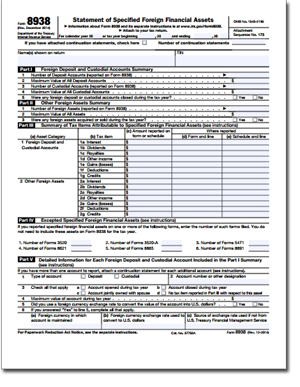By: Anthony N. Verni, Attorney at Law, CPA
August 13, 2024
®2024
EMPLOYMENT TAX AUDITS ON THE RISE
SECTION 6672 PENALTY AND CRIMINAL PROSECUTION
Employment tax audits are on the rise and so too is the exposure to those individuals deemed “responsible,” who are charged with the responsibility of properly reporting employee wages and collecting and paying over to the IRS employee withholding taxes as well as the employer’s share of Social Security and Medicare taxes. The heightened IRS scrutiny will, in all likelihood, result in certain officers, directors and other employees being subject to the 26 U.S.C. § 6672 Trust Fund Recovery Penalty (“”TFRP”).
A responsible party may also be subject to the TFRP in situations where he or she either deliberately or mistakenly classified employees as independent contractors, or where the party charged with reporting provides false information to the IRS.
A responsible person within the meaning of Section 6672 includes an officer or employee of a corporation who is under a duty to collect, account for, or pay over the withheld tax. Mazo v. United States, 591 F.2d 1151, 1153 (5th Cir.), cert. denied, 444 U.S. 842, 100 S.Ct. 82, 62 L.Ed.2d 54 (1979) Responsibility is a “matter of status, duty and authority, not knowledge.” Id. at 1156. Indicia of responsibility include the holding of corporate office, control over financial affairs, and the authority to disburse corporate funds, stock ownership, and the ability to hire and fire employees. More than one person may be a responsible officer of the corporation under § 6672. Roth v. United States, 779 F.2d 1567, 1571 (11th Cir. 1986).
In cases where indicia of employment tax fraud are uncovered, individuals also risk being criminally charged.
Prosecutions for employment tax fraud can result in severe consequences including fines, penalties, and even imprisonment. The Internal Revenue Service (IRS) as well as state tax authorities have investigative units dedicated to detecting and prosecuting employment tax fraud.
In General, employment tax fraud is uncovered during employment tax audit. As part of the audit process, IRS agents gather evidence surrounding the activities and financial condition of the business. The audit process usually includes reviewing financial records, interviewing employees as well as the principals of the business.
In particular, agents will look to see if a business is engaged in the commingling of business and personal funds. Agents will also seek to identify preferential payments to creditors and insiders, payments of personal expenses, large luxury purchases as well as other expenditures not considered to be ordinary and necessary business expenses.
It’s important for individuals and businesses to comply with employment tax laws and regulations to avoid being subject to the TFRP and a potential employment tax fraud prosecution.
Seeking guidance from tax professionals or legal advisors can help ensure compliance and minimize the risk of being subject to the Section 6672 penalty and potential criminal prosecution.
Understanding the IRS audit procedures is essential if you hope to avoid becoming personal liability or subject to criminal charges. Most TFRP assessments and criminal prosecutions contain common fact patterns.
The following is a sampling of recent employment tax fraud cases.
- West Virginia Business Owner Charged with Employment Tax Offenses. On July 23, 2024 a federal grand jury in Charleston, West Virginia, returned an indictment charging a West Virginia man with not paying employment taxes. Between the third quarter of 2018 to 2023, the taxpayer did not pay to the IRS the Social Security, Medicare and federal income taxes that were withheld from employees. He also failed to file quarterly tax returns. Instead of paying his share of employment taxes, the taxpayer used his business bank account to pay his personal expenses and diverted funds to his wife, who was not an employee.
- Former CEO of Startup Software Company Pleads Guilty to Payroll Tax Fraud Scheme. On July 22, 2024 a New Hampshire man pled guilty to not paying more than $14 million in employment tax. The defendant, Andrew Park, was the co-founder of a startup technology company and considered the responsible person for all financial matters related to the company including filing quarterly employment tax returns and collecting and paying over Social Security, Medicare and income taxes withheld from employees’ wages to the IRS as well as the employer’s shares of Social Security and Medicare taxes. From 2014 until the third quarter of 2021, the defendant withheld federal, state and local taxes from his employees, but did not pay them over to the tax authorities. As a result of the defendant’s actions, the U.S. Government sustained a tax loss in excess of $14, million.
- Virginia Woman Sentenced for employment tax fraud. On June 27, 2024 a Virginia business woman was sentenced to one year and three months in prison and payment of $950K in restitution for not paying employment taxes to the IRS. According to documents and testimony taken in court, the defendant was the owner of parcel delivery service from 2013-2018. The defendant withheld employment taxes from her employees, but failed to pay them to the IRS. To frustrate IRC collection efforts, the defendant opened new bank accounts using other individual’s social security numbers, new employer ID numbers and a variation of business names. Instead of paying the business employment taxes, the defendant withdrew $450,000 with the total tax loss to the IRS approximating $950,000.
- Michigan Shipping Magnate Charged with Filing False Tax Returns and Employment Tax Crimes. On June 12, a Michigan man was charged 15 counts of employment tax fraud in addition to filing false tax returns. The charging document alleges that defendant operated a transport business and was responsible for withholding Social Security, Medicare and federal income taxes.
- Defendant Thwarted IRS Collection Efforts by Hiding Assets from the IRS. On May 7, 2024 a Virginia business man was sentenced to 78 months in prison for evading the payment of employment taxes, filing false returns and obstructing the IRS. According to the evidence presented at sentencing, the defendant owned and operated an ambulance business from 2008 to 2009. During this time defendant was responsible for paying approximately $200k in payroll taxes. After the business failed to pay the employment taxes, the IRS assessed the 100% trust fund penalty. To avoid paying the employment taxes, the defendant claimed that he did not have the assets to satisfy the trust fund penalty. In fact, the defendant owned several beach front condominiums, multiple interests in foreign financial accounts as well as a muscle car collection. In efforts to avoid detection and frustrate IRS collection efforts, the defendant filed false income tax returns for the tax years 2013-2018 wherein rental income from the taxpayer’s Caribbean properties was omitted and false deductions claimed.
- West Virginia Ambulance Services Business Owner Convicted of Tax Crimes. On May 3, 2024, a federal jury convicted a West Virginia man for failing to pay taxes withheld from Stat EMS, LLC, an ambulance service business located in Pineville, West Virginia. EMS, a nominee entity, was created after the defendant accrued millions of dollars in employment tax liabilities from the operation of a prior ambulance business.
Often time’s unsuspecting business owners and others considered to be responsible parties choose to deal with the IRS without representation resulting in the assessment of the Section 6672 penalty. This usually occurs after the individual participates in the audit and interview processes. Business owners or other responsible parties are usually unaware that statements made to an IRS Agent during the employment tax audit or interview serves as the basis for the assessment of the TFRP. In more severe cases, these statements have been used for criminal prosecution.
Thus, the importance of having a knowledgeable and experienced Tax representation cannot be overstated. The assessment of the TFRP or a criminal prosecution can be a life altering experience, often times resulting in financial ruin or the break up of your family.
An IRS employment tax investigation generally includes interviewing potentially responsible persons, before making an assessment. The period in which the IRS may assess the TFRP against a responsible person is the same period during which the IRS may assess against the employer for the underlying employment tax liability.
Before the IRS can assess the penalty, it must send Letter 1153 (DO) 10-Day Notification Letter, 100% Penalty Proposed against Filer for Corporation, to the taxpayer informing him or her of the Proposed assessment. In Letter 1153, the IRS encloses Form 2751, (Proposed Assessment of Trust Fund Recovery Penalty), setting forth the periods and amounts of the proposed TFRP assessment, and Offering the taxpayer an opportunity to appeal the proposed assessment to the Office of Appeals. The Taxpayer has 60 days from the date of the letter to submit a written request for appeal.
After Letter 1153 and Form 2751, Proposed Assessment of Trust Fund Recovery Penalty, have been properly delivered, (IRM 5.7.4.7), Notification of Proposed Assessment, the responsible person has 60 days (75 if the letter was addressed outside of the United States) from the date of the mailing of the notice or the date of personal delivery to respond.
The IRS must provide each person being interviewed with Notice 784, (“Could You is personally Liable for Certain Unpaid Federal Taxes?”) They must also provide sufficient copies of Notice 784 to allow distribution to all other persons associated with the business who, based on the interview and other preliminary investigation, may be liable.
Form 4180 (Report of Interview with Individual Relative to Trust Fund Recovery Penalty or Personal Liability for Excise Taxes) is the form to be used for conducting TFRP interviews. It is intended to be used as a record of a personal interview with a potentially responsible person IRM 5.7.4.2.4; IRM 5.7.4.2.7. During the initial contact the agent will attempt to personally secure Form 4180 from all potentially responsible persons to the extent possible. If Form 4180 cannot be secured, the agent will document the case history with the reasons why it was not secured.
The purpose of the personal interview and completion of Form 4180 is to secure direct, detailed information regarding the individual’s or other person’s involvement in the business in order to determine if they meet the criteria for responsibility (IRM 5.7.3.4.1, Establishing Responsibility) and willfulness (IRM 5.7.3.4.2, Establishing Willfulness). The questions on the form are intended as a guide and are not all inclusive; supplemental questions may be asked.
Generally, if the agent is attempting to secure Form 4180, you should state during any interview that you wish to consult with an authorized representative, at which time the agent is required to suspend the interview to permit such consultation IRM 5.1.10.7.1.
Employment tax compliance is considered a priority to the IRS. Consequently, if you are contacted by the IRS concerning employment taxes you should be concerned. It is important to be proactive. Do not let fear control you into paralysis. Engaging an experienced attorney is the best place to start. If you are represented the IRS will not try to put words in your mouth and is less likely to accuse you of lying to an agent.








